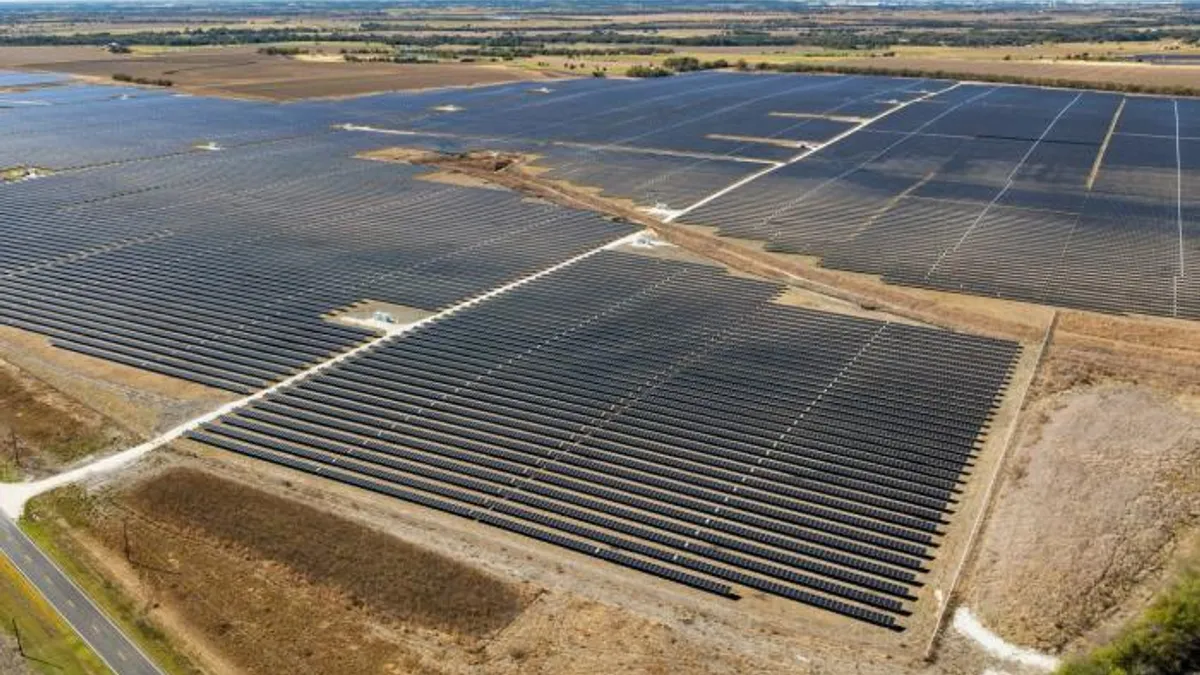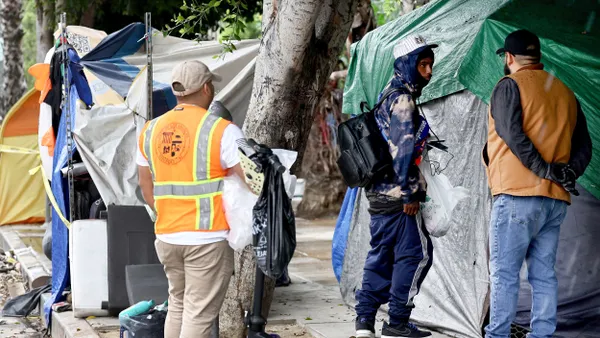Dive Brief:
- A consortium of Boston-area universities, a health system and members of a regional group of government and nonprofit energy buyers has established two virtual power purchase agreements with Apex Clean Energy to develop 408 megawatts of renewable energy generation capacity in other parts of the U.S.
- The Consortium for Climate Solutions consists of Harvard University, Massachusetts Institute of Technology, the Mass General Brigham health system and eight members of PowerOptions, a group of more than 500 public and nonprofit energy buyers in New England, according to a Nov. 20 news release.
- The Apex solar and wind projects the VPPA will support will generate an estimated 1.3 million megawatt-hours of clean electricity per year and avoid the release of more than 950,000 tons of carbon dioxide equivalent, an amount equal to the emissions resulting from the annual energy consumption of 130,000 homes, according to a fact sheet shared by Apex.
Dive Insight:
VPPAs expedite the development of utility-scale renewable energy projects in areas outside the buyers’ region to promote cleaner electricity generation, reduce air pollution and spur economic development, Apex said. In return, the consortium participants receive renewable energy credits for the power those projects produce, advancing their clean energy goals, according to a WBUR story on the deal. It reports that Mass General Brigham expects the VPPA to offset nearly 65% of its annual electricity consumption. Harvard and MIT aim to offset all campus emissions in 2026, WBUR said.
These two 15-year VPPAs will support the development of Apex’s 200-MW Big Elm solar facility in Bell County, Texas, and 208-MW Bowman wind project in Bowman County, North Dakota, according to the news release.
PowerOptions, an energy procurement group with 500 member nonprofit and public entities in Massachusetts, Connecticut and Rhode Island, enabled the consortium’s eight smaller participants “to join in with access to the same negotiated rates and competitive terms as the anchor participants,” Apex said. Climate solutions provider 3Degrees facilitated the aggregation on behalf of the consortium, according to the release.
The Boston-area Consortium for Climate Solutions “unites an unprecedentedly diverse group of buyers” — the other members are three additional healthcare providers, public radio station GBH, the Museum of Fine Arts, Tufts University, the Massachusetts Convention Center and the city of Cambridge, Massachusetts — and will represent the second-largest such aggregation by megawatts and number of participants, Cat Strumlauf, Apex Clean Energy senior director of marketing and communications, said in an email.
The Consortium arose in 2020 out of an existing collaboration between Harvard and MIT, according to the Apex fact sheet. Harvard, MIT and Mass General Brigham “each have long-term planning capability, compatible risk tolerance, strong financial positions, and the creditworthiness required to successfully negotiate and execute a VPPA in today’s competitive and rapidly evolving renewable energy market,” the Consortium said in a separate fact sheet.
“Through this Consortium, our members were able to take advantage of this innovative carbon reduction pathway that would not have been possible on their own,” PowerOptions President and CEO Heather Takle said in a statement. “It was a brand-new concept and [an] enormous decision for our members, who trusted us to advise them through the process and can now look forward to reaping the benefits.”
The consortium’s VPPAs are structured as contracts for difference, Strumlauf said. When market prices for electricity are below a certain threshold, consortium buyers pay the project; when market prices are higher, the project pays the consortium buyers.
Both the Big Elm Solar and Bowman Wind projects qualify for federal clean energy tax credits, Strumlauf said, which benefit the consortium members through competitively priced electricity, Strumlauf added.
The Big Elm project came online earlier this year; the Bowman project is expected to begin operations in 2026, Apex said.












